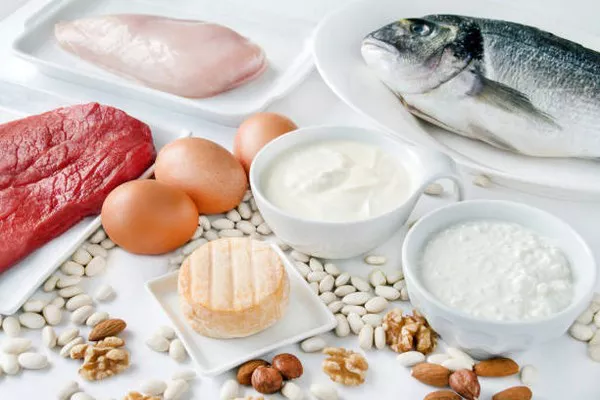A recent study published in Nutrients has shed light on the effects of dairy consumption on gut health, specifically examining how milk, cheese, and other dairy products impact colonic mucosa-associated gut microbiota. This research underscores the complex relationship between dairy intake and gut health, highlighting the need for further investigation into its long-term effects on the human microbiome.
Background
The human gut is home to trillions of bacteria, playing a vital role in everything from digestion to mental well-being. While diet is increasingly recognized as a key factor in shaping the gut microbiome, the role of dairy products remains a subject of debate. Dairy provides essential nutrients, including calcium, vitamins, and probiotics, but conflicting studies have raised concerns about its potential to cause inflammation and metabolic disturbances. Some research suggests dairy could boost beneficial gut bacteria, while others warn about possible adverse effects. Given the widespread consumption of dairy worldwide, understanding its precise influence on gut microbiota is crucial for developing effective dietary guidelines and public health recommendations.
About the Study
The study, led by researchers in the United States, explored the effects of dairy on gut bacteria by focusing on the gut’s microbial composition and how it relates to specific dairy components. The study specifically found that lactose, a sugar found in milk, may act as a prebiotic that promotes the growth of beneficial gut bacteria. Researchers observed that the positive relationship between milk intake and Akkermansia, a bacteria linked to gut health, was reduced after accounting for lactose intake, suggesting that lactose or other dairy components might stimulate the growth of beneficial bacteria.
The study involved 34 participants who had recently undergone colonoscopies at the Michael E. DeBakey Veterans Affairs Medical Center in Houston, Texas. Strict eligibility criteria were used to select participants, excluding those with inflammatory bowel disease (IBD), recent antibiotic use, or significant dietary changes. Participants self-reported their dairy intake over the past year through a validated food frequency questionnaire (FFQ), with nutrient intake adjusted for caloric consumption.
Colonic mucosal biopsies were taken and analyzed using 16S ribosomal RNA (rRNA) gene sequencing to assess the microbial composition. The study also accounted for variables such as age, body mass index (BMI), smoking status, alcohol consumption, and overall dietary quality.
Study Results
The study revealed several significant findings. First, participants who consumed more total dairy products (not just milk) had a higher abundance of Bifidobacterium, a probiotic bacterium known for its digestive health and immune-boosting properties.
Additionally, greater dairy and milk consumption was linked to increased microbial alpha-diversity, indicating more diverse and balanced bacterial populations in the gut. In contrast, higher cheese consumption correlated with lower microbial diversity. Beta-diversity analysis further revealed notable differences in gut bacterial composition based on dairy intake levels.
Increased dairy and milk intake was also associated with higher levels of Faecalibacterium, a bacterium recognized for its anti-inflammatory effects. Furthermore, higher milk consumption was connected to an increase in Akkermansia, a bacterium that degrades mucin and is linked to improved gut barrier function and better metabolic health. However, the relationship between Akkermansia and milk consumption weakened when adjusted for lactose intake, suggesting that lactose or other dairy components could have prebiotic effects, promoting the growth of these beneficial bacteria.
On the other hand, higher cheese consumption was associated with lower levels of Bacteroides and Subdoligranulum. While Bacteroides have been linked to colorectal cancer (CRC), lower levels of Subdoligranulum have been associated with metabolic disorders. The study also found a negative association between total dairy intake and Bacteroides, further highlighting the complex relationship between dairy products and gut microbial composition.
The researchers also noted that the impact of milk and cheese on gut health might be due to their differing nutrient content and fermentation processes. Milk, which is rich in lactose, may promote the growth of beneficial bacteria, while cheese, which undergoes fermentation, could have different effects on the gut microbiome. Notably, the study did not find significant links between yogurt consumption and microbial composition, possibly due to the low yogurt intake among participants.
Implications for Health and Diet
These findings suggest that different dairy products can have distinct effects on gut health, with milk promoting the growth of beneficial bacteria, while cheese may alter microbial diversity in ways that could influence health outcomes. Understanding these differences is crucial for formulating dietary recommendations and interventions aimed at improving gut health.
This study contributes valuable insights into the ongoing debate over dairy’s role in the human diet, particularly in relation to gut microbiota. While milk seems to support beneficial bacteria, cheese consumption appears to have a more complicated impact on microbial balance. Future research is needed to explore these effects further and to determine the long-term consequences of dairy consumption on overall health.
You Might Be Interested In:
-
Low Vitamin D in First Trimester Linked to Higher Preterm Birth Risk and Reduced Fetal Length
-
Fewer Than 20% of Women Screened for Cardiovascular Risk After Pregnancy Complications


